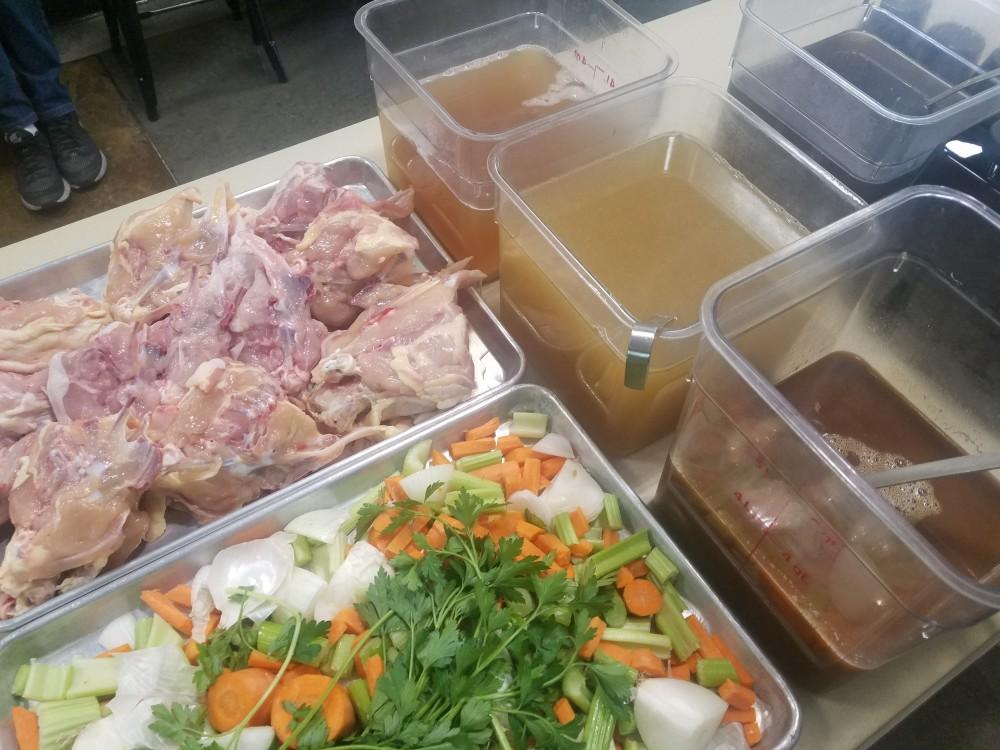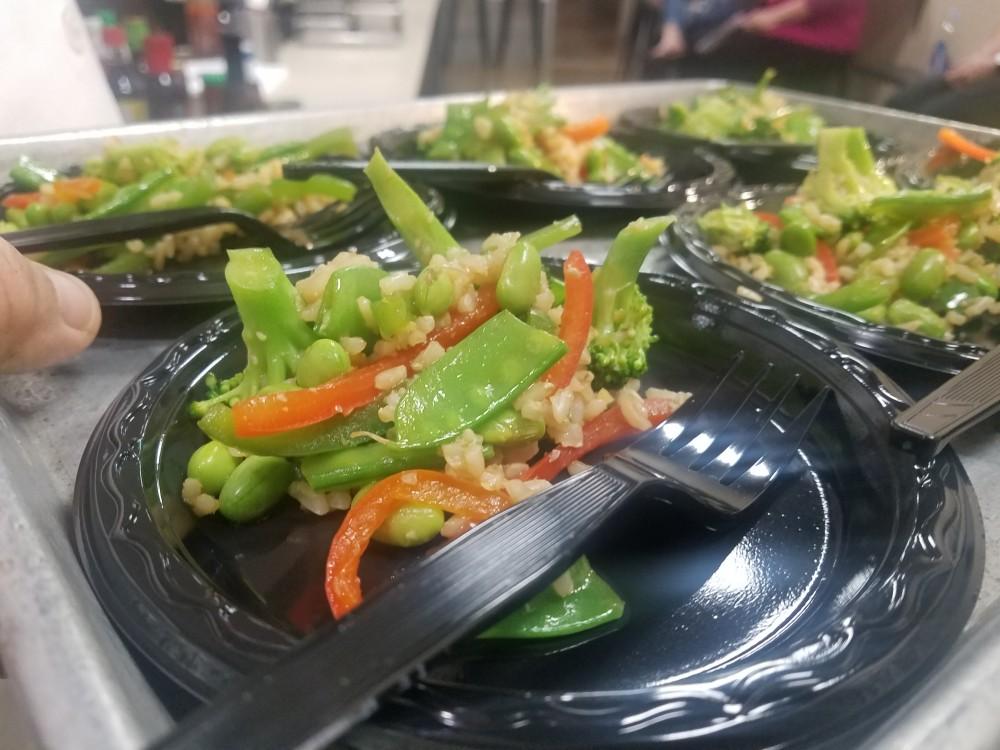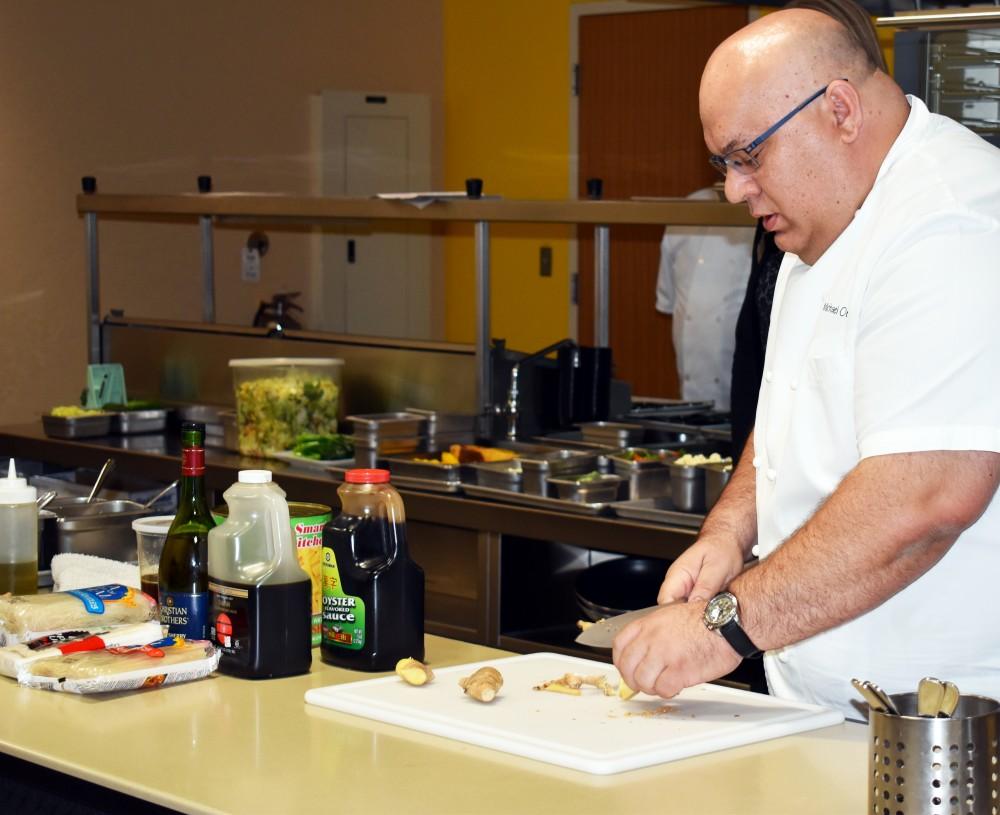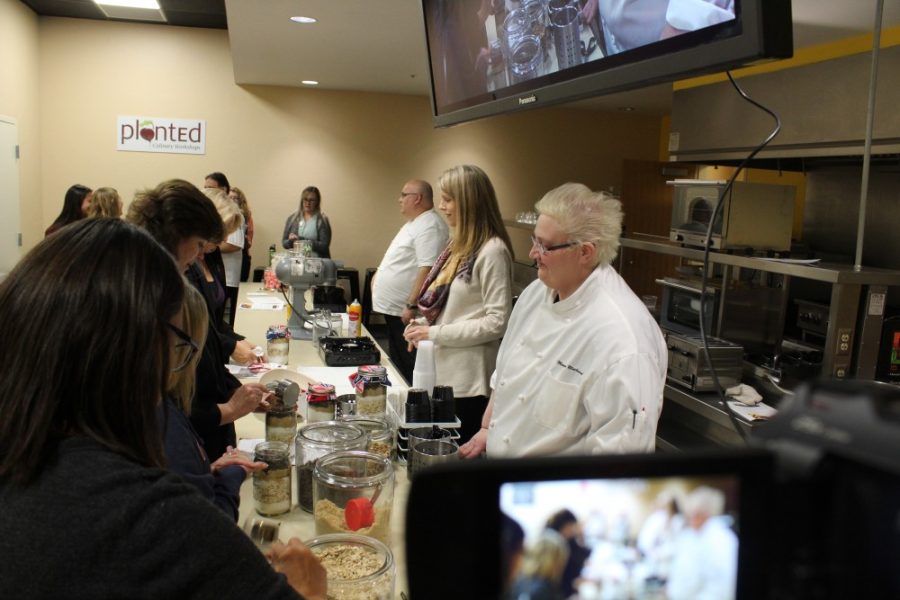For college students, it is incredibly easy to fall prey to unhealthy eating habits, as students may not know how to cook, may lack the time to do so or could be low on grocery money. Luckily for students at the University of Arizona, Arizona Student Unions is hosting another year of plantED Culinary Workshops, beginning this month.
plantED was first introduced last year, when Christine Carlson, assistant director of nutrition for Arizona Student Unions and registered dietician, and Arizona Student Unions Senior executive chef Michael Omo came together with a mission to teach students to cook for themselves.
RELATED: Creating visual conversations around gun violence
“Having the basics for preparing meals, how to compose a plate and just being aware of the different types of plants that could be utilized in a dish would be beneficial to anyone,” Carlson said. “But we really want to see students thrive mentally and physically while they are at the university and carry on those life skills after they graduate.”
The plantED Culinary Workshop Series promotes plant-based culinary education all school year. There are 15 classes between now and April helping students learn to cook specific recipes, how to shop or how to avoid wasting ingredients.

Carlson and Omo co-host the workshops. Omo teaches culinary skills and techniques, and Carlson educates on the nutritional value of the recipes they exhibit.
The workshops take place in a demonstration-style kitchen, complete with long countertops suitable for hands-on learning and a giant monitor overhead so observers can see the detailed work of chef Omo.
From cooking novices to masters of the kitchen, attendees will not only learn the basics of a recipe; Omo will also try to offer culinary tips to diversify the recipe’s palate.
“We’re really trying to open minds up [to] the idea that vegetables are good, that there are lots of different ways of preparing them and teach how to prepare them and put your own little twist on it at the same time,” Omo said.
Even desserts can be healthy, said Omo, who likes to teach his pupils about “Nice-cream” — a sweet, ice-cream-like dessert option made entirely of fruit.
“We’re using frozen fruit that we puree with a little bit of lemon juice, and sometimes we add a little milk. By blending it a certain way, it comes out like ice cream,” Omo said. “It’s super easy to do, anybody can do it.”

The first class, Root to Stem Cooking on Sept. 19, educated attendants on how to save useful parts of fruits and vegetables that may otherwise be thrown away and how to shop in a more effective way.
RELATED: LGBTQ+ fraternities/sororities balance exclusivity with inclusivity
Carlson stressed the economic benefits of buying fresh fruits and vegetables: Most of them can be eaten raw or quickly prepared with minimal equipment or by simply being thrown in the microwave. In-season produce tends to be a much cheaper alternative to other foods as well.
“If you’ve never worked with eggplant before, you may never buy it, but the nutritional value of it is really great, and there’s lots of things you can do with it,” Omo said. “The more you understand how to use something, the less you’re intimidated by it.”
Omo and Carlson will teach one-pot cooking, the seasonality of certain fruits and vegetables and how to add some zest to cheap, monotonous dishes, like rice.
“You can change it up and still have rice as your base ingredient, but add salsa to it and have a whole different dish, a little spicy like Spanish rice. Add soy sauce or ginger and you’ve got more of an Asian style,” Omo said. “There’s lots of ways to have the same base ingredient, but change the flavor profile of it to add a little zing to whatever you’re eating.”
All students with a Catalina Plus Swipe Plan get a free, one-year membership to plantED Culinary Workshops, including six free guest-swipes per semester so students can eat and learn to cook with family and friends.
“Nutrition can have such an impact on day-to-day life, but also on longevity,” Carlson said. “[Teaching to cook healthy meals] is a really rewarding career path.”

Omo says his favorite part is creating new concepts and playing with food. Being able to share his love for food with others is what makes his job so worthwhile.
“Food is one of those things — if you think back to all of the places or times you celebrated or you’ve done something fun, food is always involved somehow,” Omo said. “So, if we’re able to teach someone to create a great meal, then I think that’s a great tool to be able to learn.”
Follow Daily Wildcat on Twitter









